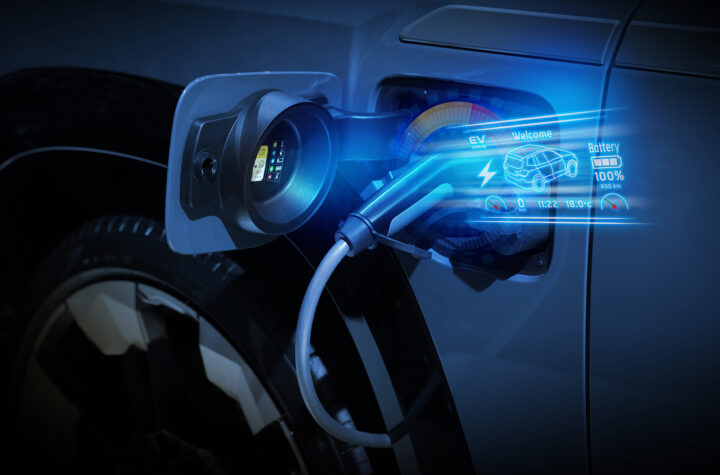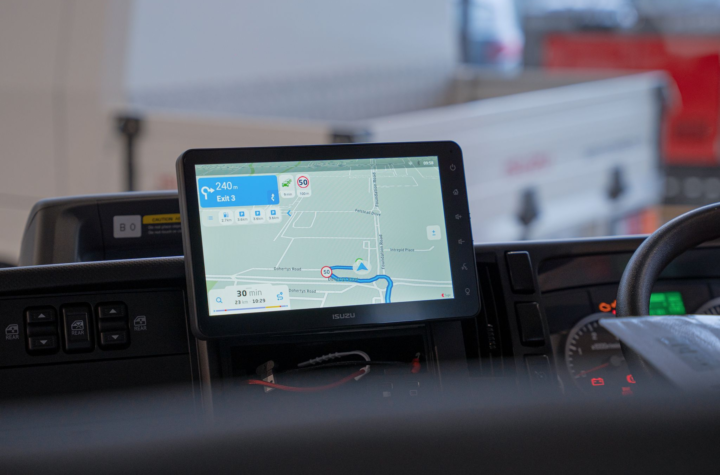
EV battery development in the United States has received a major boost through the award of a US$120-million grant over five years to a multi-partner team led by Argonne National Laboratory to establish a new Batteries and Energy Storage Hub.
The Hub, to be known as the Joint Center for Energy Storage Research (JCESR), will combine the R&D firepower of five DOE national laboratories, five universities, and four private firms in an effort aimed at achieving revolutionary advances in battery performance. There is high-powered political will behind the US drive. In March 2012, President Barak Obama launched the EV-Everywhere Challenge designed to make clean energy technologies affordable and accessible to American families and businesses. The JCESR funding award was announced by U.S. Secretary of Energy Steven Chu, who was joined by Senator Richard Durbin, Illinois Governor Pat Quinn, and Chicago Mayor Rahm Emanuel. Advancing next generation battery and energy storage technologies for electric and hybrid cars and the electricity grid are a critical part of President Obama’s all-of-the-above energy strategy to reduce America’s reliance on foreign oil and lower energy costs for U.S. consumers.
“This is a partnership between world leading scientists and world leading companies, committed to ensuring that the advanced battery technologies the world needs will be invented and built right here in America,” said Secretary Chu. “Based on the tremendous advances that have been made in the past few years, there are very good reasons to believe that advanced battery technologies can, and will, play an increasingly valuable role in strengthening America’s energy and economic security by reducing our oil dependence, upgrading our aging power grid, and allowing us to take greater advantage of intermittent energy sources like wind and solar.”
“This new hub brings together, under a single organizational roof, the world’s leading scientists, engineers and manufacturers in energy storage and provides them with the tools, resources and market reach necessary to produce major breakthroughs,” said U.S. Senator Dick Durbin. “The large-scale, innovative research and transformational new battery systems that will result from this venture will mean more effective, lower cost and longer life energy storage technologies with real world applications for anything that can use a rechargeable battery. The project promises to have a significant economic impact across Illinois with the help of towns and businesses who have already agreed to partner on the commercialization of promising technology developed at the Hub.”
“The research at the Energy Storage Hub has the potential to revolutionize the energy industry,” said Senator Kirk. “From transportation to the electric grid, the hub will bring the private sector, national labs and universities together to deliver new technologies and scientific approaches needed to transform the battery and energy storage industry and spur commercial innovation. The Hub at Argonne will help boost our local economy and create new jobs. Today’s announcement further establishes Illinois and Argonne as a leader in this growing industry.”
Governor Quinn is providing $5 million through his Illinois Jobs Now! capital construction plan to help build the state-of-the-art JCESR facility, which will be located on the Argonne National Laboratory campus in suburban Chicago. The Governor has also committed to working with the General Assembly to provide an additional $30 million in future capital funding for the building, which will serve as a nationwide center for energy storage research and is a key part of the governor’s plan to create jobs and grow Illinois’ economy through cutting-edge innovation.
“Since taking office, I have been focused on making Chicago the electric vehicle and batteries capital of the nation,” said Mayor Rahm Emanuel. “This includes creating incentives to encourage the adoption of electric vehicles, attracting companies to manufacture electric vehicles, and now, working with Argonne to make sure that Chicago is at the epicenter of research on this subject. All of these pieces fit together into a comprehensive strategy that will allow Chicago to lead in this industry, from conception to construction to implementation.” JCESR will be directed by George W. Crabtree, Argonne Senior Scientist, Distinguished Fellow and Associate Division Director; Distinguished Professor of Physics, Electrical and Mechanical Engineering, University of Illinois at Chicago; and an internationally recognized leader in energy research. “The JCESR batteries and energy storage hub gives us a new collaborative, inter-institutional R&D paradigm in which to develop the energy storage technologies that transform both the electricity grid and transportation and so reduce our dependence on foreign oil,’ said Eric Isaacs, Director of Argonne National Laboratory.
The Hub will bring together some of the most advanced energy storage research programs in the U.S. today. Other national labs partnering with Argonne include Lawrence Berkeley National Laboratory, Pacific Northwest National Laboratory, Sandia National Laboratories, and SLAC National Accelerator Laboratory. University partners include North western University, University of Chicago, University of Illinois-Chicago, University of Illinois-Urbana Champaign, and University of Michigan. “This ambitious initiative, which builds on Argonne National Laboratory’s innovative work in advanced battery technology, will create new opportunities for technological research and economic development in the city of Chicago and the region,” said Robert J. Zimmer, University of Chicago President. “It will rely on a public-private partnership to speed the development of environmentally sound energy storage capabilities, with potentially profound economic benefits.” Four industrial partners have also joined to help clear a path to the marketplace for the advances developed at JCESR, including Dow Chemical Company, Applied Materials, Johnson Controls, and Clean Energy Trust. In March 2012, Secretary Chu announced that Best Buy, Johnson Controls, Pacific Gas and Electric, and Veolia had joined the Energy Department’s National Clean Fleets Partnership, a broad public-private partnership that assists the nation’s largest fleet operators in reducing the amount of gasoline and diesel they use nationwide.
JCESR is the fourth Energy Innovation Hub established by the Energy Department since 2010. Other Hubs are devoted to modeling and simulation of nuclear reactors, achieving major improvements in the energy efficiency of buildings, and developing fuels from sunlight. A fifth Hub focused on critical materials research was announced earlier this year and is still in the application process.
Over the past few decades, DOE national laboratories and DOE-funded university research programs have been responsible for some of the most important advances in battery technology.
For example, key battery improvements developed at Argonne helped make the Chevy Volt battery possible.














More Stories
Lakshmi Prasad Bhatta on the quest for zero road deaths
Cybord TCI – The Future of Manufacturing Integrity
Flexible Magna Manufacturing Solutions: The Key to Success in the Automotive Industry